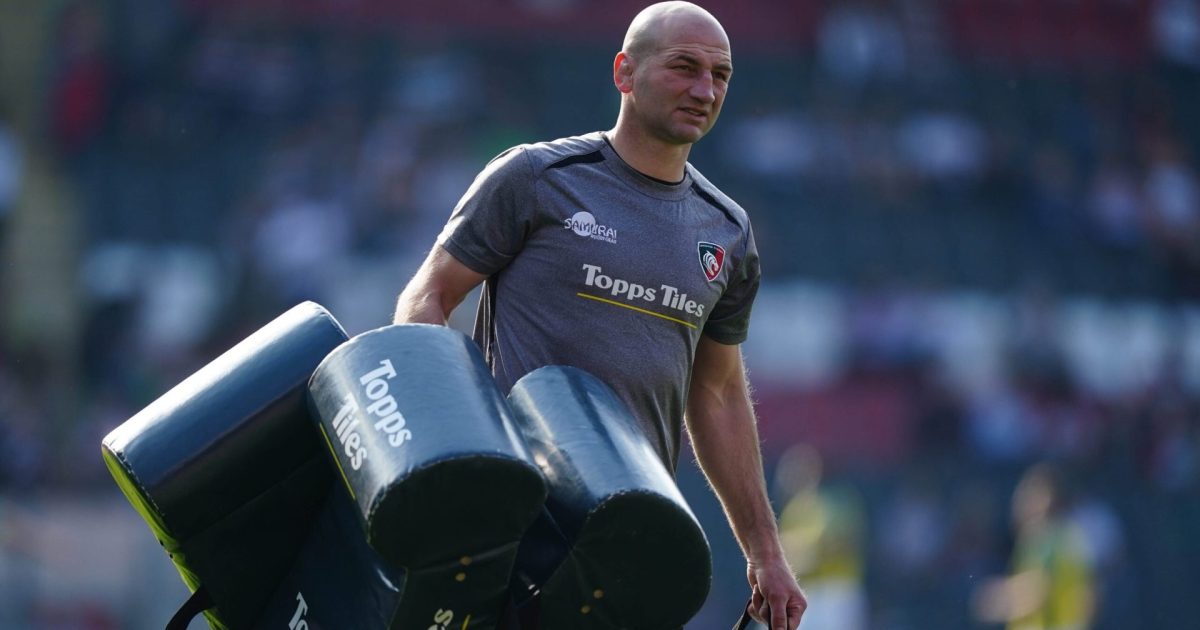Borthwick denies Leicester tackle issues a result of poor training

Steve Borthwick, the Leicester Tigers head coach, insists his squad are being coached to try and avoid dangerous head contacts and is adamant he does not want the introduction of a 20 minute red card despite losing two players in successive Heineken Champions Cup matches against Clermont Auvergne.
The 20 minute red card idea is being trialled by Super Rugby and considered for wider introduction by World Rugby and would mean a player who is sent off can be replaced 20 minutes later by a substitute.
Borthwick’s view is particularly relevant as Guy Porter, in the first game in France, and Ollie Chessum on Saturday were dismissed for making contact with an opponent’s head in the two victories that put Leicester into a Cup quarter final at home to Leinster.
The latest European matches saw a blizzard for red and yellow cards and the issue is going to remain a major talking point for the rest of the season. However, Borthwick has made his stance very clear saying: “My view is a red card is a red card. That’s the way I was always brought up. If someone was given a red card they were off the pitch and did not return.
“That’s been my stance. Generally now with the ability of the TMO to review the footage, to go through a process, there shouldn’t be too many things mixed or too many mistakes made. There are clear protocols set out, therefore if somebody does something that warrants a red card, a sending off, then that should be for the game.”
Borthwick is adamant Leicester are working hard in training to lower the height of the tackler in a bid to avoid more red cards but accepts it may take time for it to become second nature.
2022 is on track to be the season where the most red cards EVER have been dealt out.
Red card for Leicester ? pic.twitter.com/HouWyuSJB0
— RugbyPass (@RugbyPass) April 16, 2022
He added: “We work each week on our tackle height. We work on practicing that as much as we can without doing more tackling than we already do. We measure our contact in training. You always find different ways to do it and we have still had a couple of incidents. One wasn’t a tackle. It was still a head collision that led to a red card. We are working hard at it and I am sure every other club is working hard at it.
“We need to make sure we have got good habits in every player who enters the system. The most important thing in this area is that we are coaching all the young players right from the outset the height with which they need to tackle. That will take time to filter through but by ingraining good habits at a young age as quickly as we can so that if we get the right habits at a young age then it will filter through. I am an advocate of coach development and helping coaches as much as we can and investing in coaching to help young players.
“We have players who have been playing rugby an awful long time. We are trying to change their habits that are ingrained. We are working hard to lower the tackle height.
“I think rugby has made some substantial changes and has been pretty clear on the protocols that need to be followed. I think that the sanctions around tackle height are pretty steep. By the nature of the red cards, I think people can see this issue taken pretty seriously. So I’d say rugby is taking a pretty progressive stance in getting on to it.”


















































